A lot of good stuff is happening in the fediverses!
There really is a lot going on!
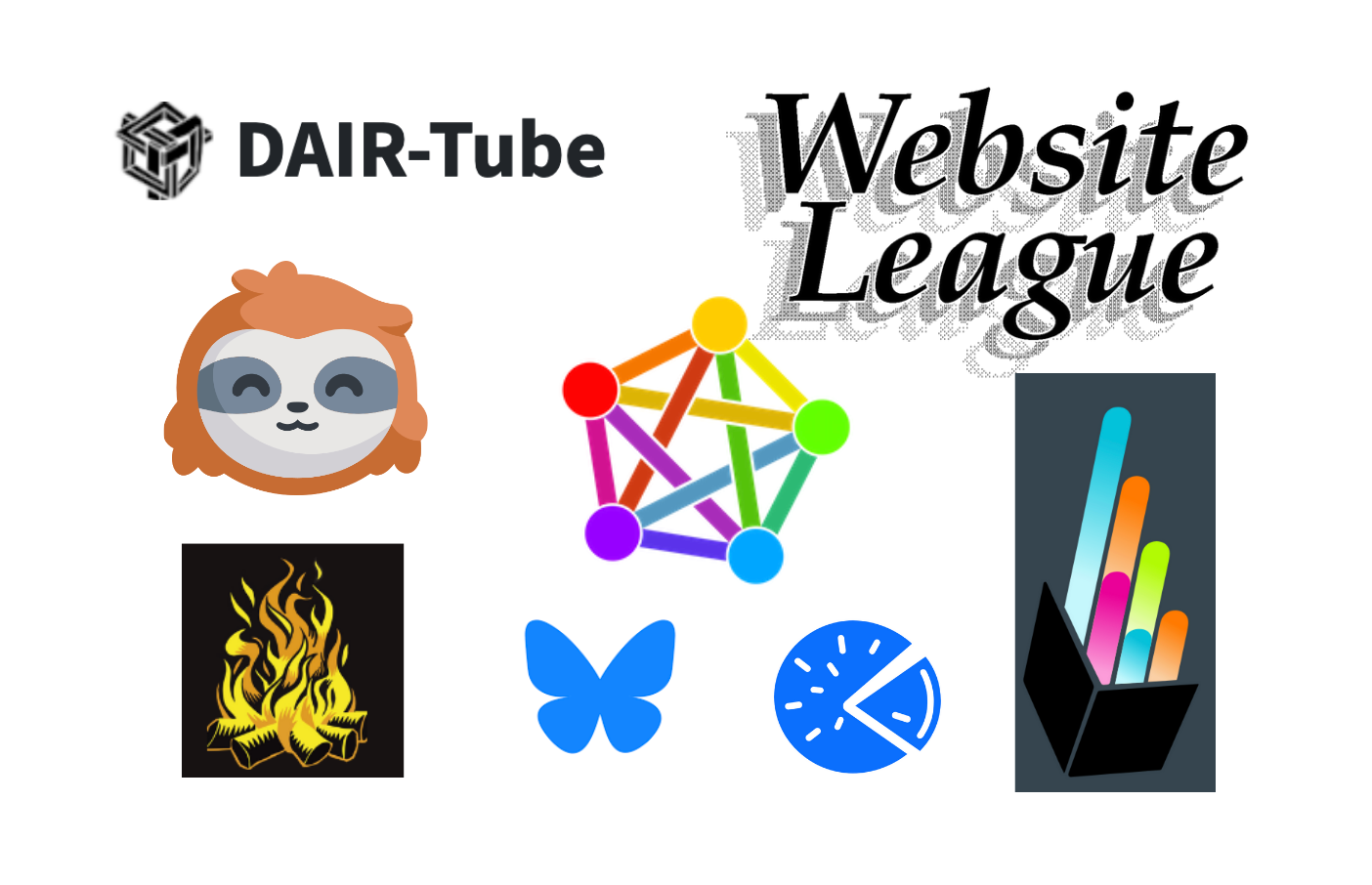
Part 12 of Golden opportunities for the fediverse – and whatever comes next.
Join the discussion on Bluesky, infosec.exchange, lemmy.world and discussions.thenexus.today!
"[T]his new surge highlights how different the situation in the fediverses is from November 2022, when millions of people dismayed by Apartheid Clyde's acquisition of Twitter flocked to Mastodon looking for a Twitter alternative.
And a good thing too!"
– I for one welcome Bluesky, the ATmosphere, BTS Army, and millions of Brazilians to the fediverses!
There's often a lot of negativity in the fediverses. And for good reason: there's often a lot to be disappointed, frustrated, cynical, and concerned about! Not only that, at least in the US, almost all the high-profile press coverage of "the Fediverse" these days focuses on Meta's Threads' tiny incremental steps forward on their plans to embrace, extend, and exploit ActivityPub ... and that's a topic it's especially easy to be disappointed, frustrated, cynical, and concerned about.
So it's useful to notice that hey, there's also a lot of good stuff happening in the fediverses! For example:
- DAIR-tube and dair-community.social
- The Website League
- GoToSocial
- Piefed and the Threadiverse
- Bonfire
- Letterbook
- Bluesky and the ATmosphere
- And ...
Of course there's plenty of stuff happening that's not so good ... but let's put the negativity on hold, at least for this post.
Teminology note: There are many fediverses discusses the terminology I'm using here – but there's no need to wallow in the details unless you're into it. A fediverse is a decentralized social network. Different people mean different things by "the Fediverse" (and Definitions of "the Fediverse" goes into a lot more detail for your wallowing pleasure). Since 2018 or so most people have used "the Fediverse" as a synonym for the ActivityPub-centric Fediverse, and that's how I'm using it here (although that may be changing; the tech press increasingly considers Bluesky part of "the Fediverse")
DAIR-tube and dair-community.social
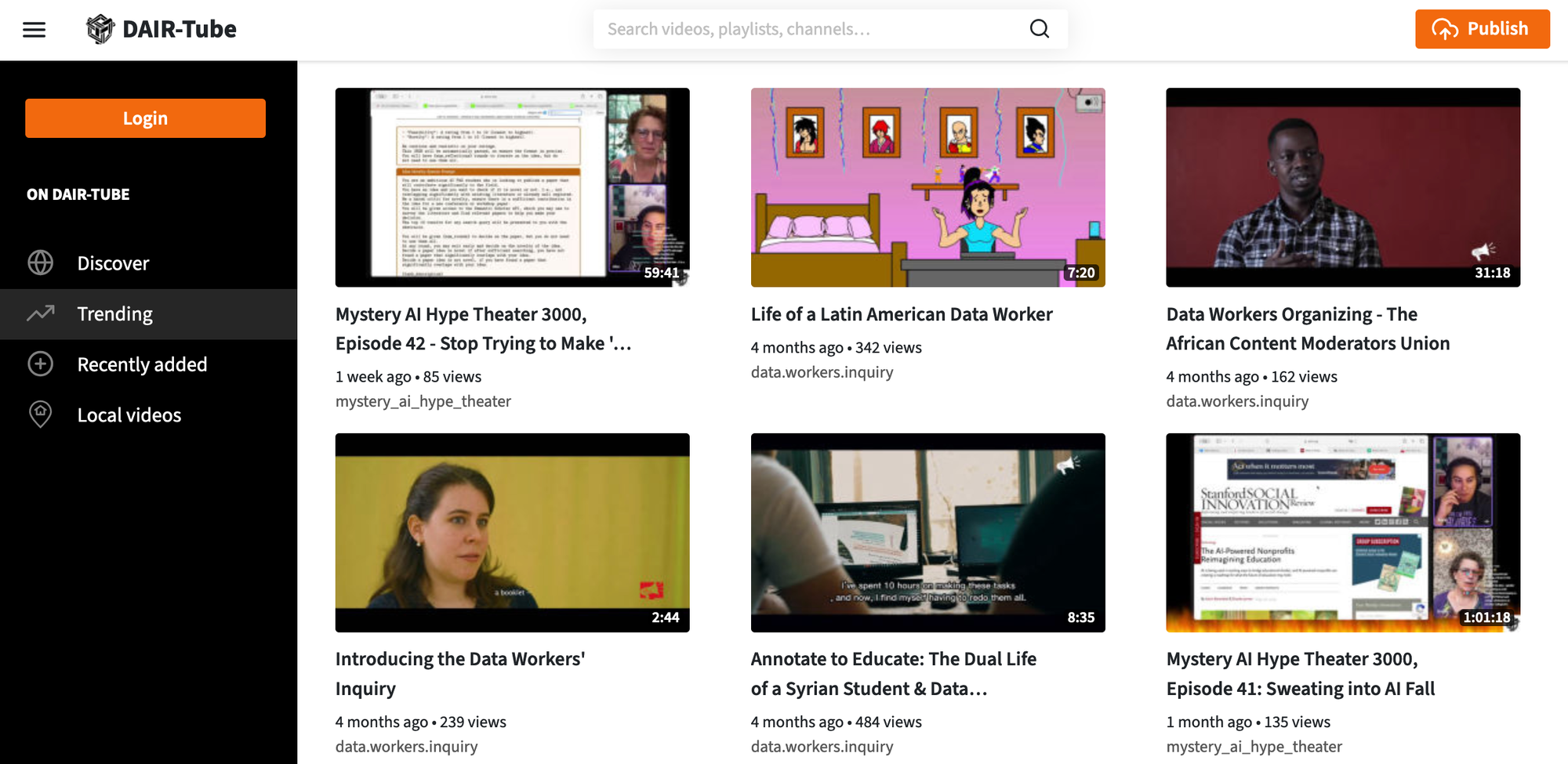
Dr. Timnit Gebru's Distributed AI Research Institute is an interdisciplinary and globally distributed AI research institute rooted in the belief that AI is not inevitable, its harms are preventable, and when its production and deployment include diverse perspectives and deliberate processes it can be beneficial. The
DAIR-tube, their PeerTube page, includes videos of their Data Workers Inquiry and Mystery AI Hype Theater 3000 – world-class research, foucsed on justice and equity, available on the Fediverse. Along with their Mastodon instance dair-community.social, it's a great example of what's possible with today's technology.
DAIR's fediverse presence isn't replacing their presence on commercial social media; I follow Timnit Gebru on other platforms as well as Mastodon, Mystery AI Hype Theater 3000's hosts Emily Bender and Alex Hanna stream on Twitch and make their videos available on YouTube as well as PeerTube. And that's okay! Today's Fediverse lets them provide surveillance capitalism-free access to this anti-oppressive work, and interact with people in multiple languages (thanks to Mastodon's easy-to-use in-app translation).
The Website League

"The Website League is a new social media project, built with the goals of providing its users a safe, healthy, and resilient place to share their thoughts, ideas, and art. With avoidance of dark patterns we believe drive unhealthy engagement of social media, a centralized decisionmaking body, and a shared set of community guidelines, our core aim is to provide a system that is enjoyable to use, and free of discrimination, bigotry, and harrassment of all kinds."
– The Website League
The Website League is a much newer project, it's starting with the right priorities from the beginning. The people involved are veterans of other social networking projects, and from the public discussions that their decisionmaking body and supporters are having, it's clear that they're focused on learning lessons from the past and doing their best to avoid common pitfalls (including anti-Blackness).
And just as exciting to me is the network topology they're using. As the in-depth primer on their site explains
"The Website League is an "island network," where our software runs in allowlist mode. Websites will only talk to other websites they have placed in their allowlists. That list of websites will be cooperatively managed; a website that is a member of the League will be able to talk to all other websites in the League. It's either in, or it's out.
The League is an experiment in doing something different. We are building a town that works cooperatively from the start: our neighborhoods are all connected to each other, like a city built on a grid. We are starting with an agreement on what we want our city to look like, how people in it should be able to get around, and how to keep people safe. Nobody digs up roads, because this harms everyone in the city; to solve problems, we have a centralized, democratic, consensus- and consent-based system of governance."
There have been some smaller-scale experiments with consent-oriented federation (quite a few fediverse software platforms support allow-list fedieration), and some interesting thinking about federations of instances, but The Website League is the first ActivityPub-based platform I've seen try to make it work at scale. Of course, it's very early days yet, and no doubt there will be plenty of challenges ... but The Website League's already sparking some interesting development work, and the processes, technology and artifacts they develop are likely to be useful starting point for other federations as well.
GoToSocial

I've been excited about GoToSocial's steady progress for a while. For one thing, GoToSocial's focusing on small-to-medium instances, and requires a lot less resources than Mastodon – which makes it a lot cheaper to host. And unlike Mastodon, GoToSocial's being developed with much more of a "privacy by design, privacy by default" perspective. A couple simple (but important) examples:
- Mastodon disables the all-important "secure fetch" functionality by default, meaning blocks are a lot less effective; on GoToSocial, it's always on.
- Mastodon includes "unlisted" posts on account profiles. That's not what "unlisted" means on YouTube ... or anywhere else that I know of. GoToSocial doesn't by default, although there's a setting to turn it on if you want ... and there's also a setting to even keep your public posts off your profile. (The latest Mastodon release changed the name of "unlisted" to "quiet public", which is at least more accurate, but no more privacy-protective.)
- Mastodon doesn't give you a way to disable RSS feeds. GoToSocial turns them off by default.
The just-shipped release 0.17 of GoToSocial introduces interaction controls, allowing people to control who can reply to or quote their posts – features that Mastodon users have requested for years, and that Bluesky introduced this spring, which can make a biiiiig difference in limiting the impact of the racists, misogynists, and anti-LGBTQAI2S+ bigots that are so common in the ActivityPub Fediverse (and everyhere else too of course).
Of course, it's early days; GoToSocial's just starting beta testing. Still, I've been kicking the tires on it and it's very usable with a web user interface like phanpy.social. Now that 0.17 is officially released, I set up my own instance with a personal account and an account for The Nexus of Privacy. 1 It was quite easy to do (the documentation is very clear), but if you don't want to fiddle with Linux sysadmin, K&T host offers a $3.75/month package.
Piefed and the Threadiverse
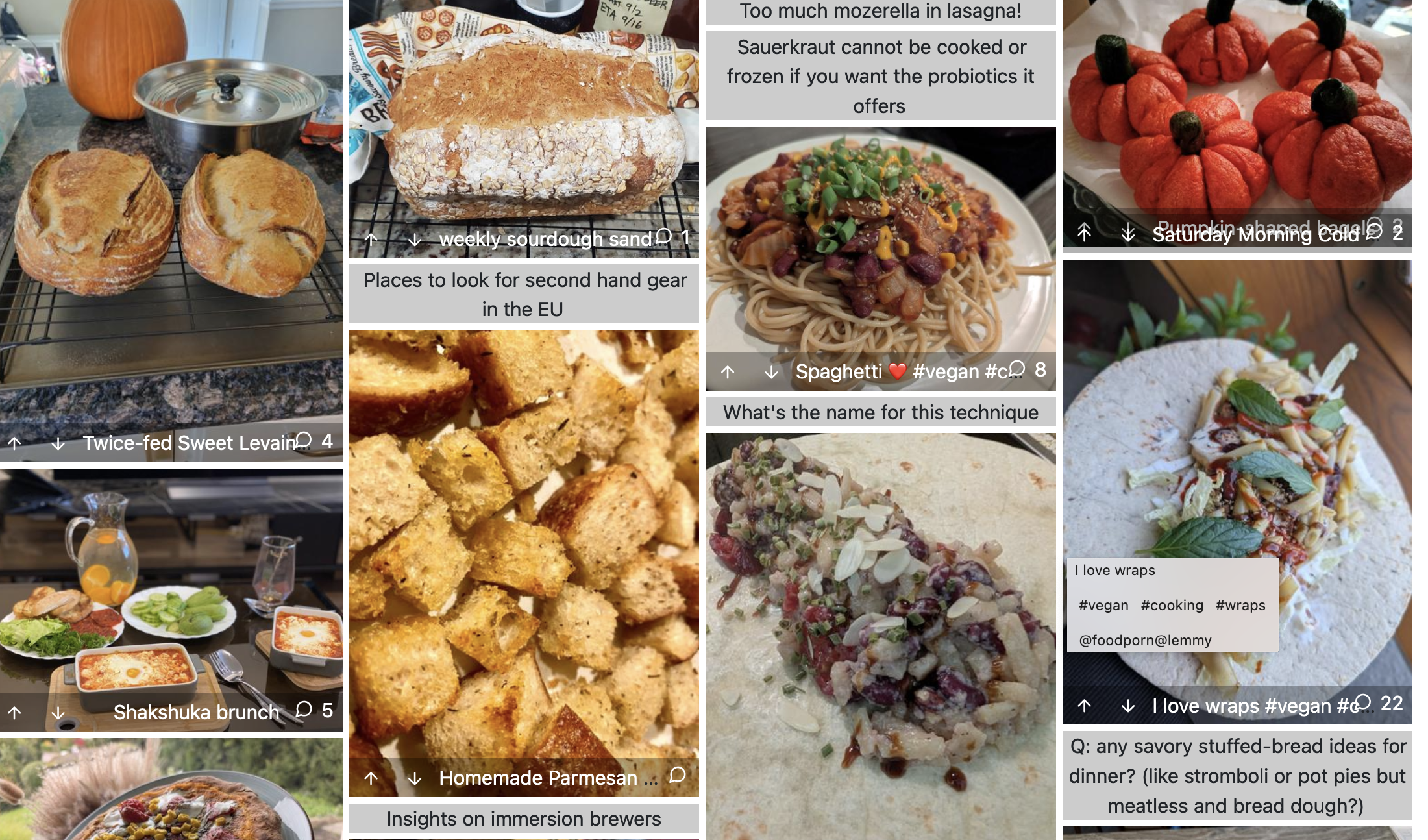
Piefed is a link aggregator, forum, and hub of social interaction and information, that focuses on "individual control, safety, and decentralised power." Piefed's functionality goes beyond other federated link aggregrators, including topics (with hiearchy) and a visually striking tiled view. Just as importnat is a focus on moderation and safety, critical issues that better-known Lemmy is notoriously bad at.
Piefed's one of the many interesting things happening in the "Threadiverse", a term many use to refers to federated link aggregators, forums, blogs, and other threaded discussions. For example:
- The Nexus of Discussions uses NodeBB, a solid forum that's been around for years and now (thanks to a grant from NLNet) has add ActivityPub support.
- write.as has recently added an integratino with sub.club to support subscriptions
- micro.blog supports note taking, audio transcripts, newsletters, reading goals, and bookmarks as well as blogging.
- Wordpress' ActivityPub plugin continues to improve, and they've made it easy for people hosting on wordpress.com to turn on federation with a single click.
- Ghost is building in public, with an ambitious vision and a lot of candor about the challenges, and is using Fedify (a well-documented open-source ActivityPub framework) so is likely to have benefits for the broader ecosystem as well.
And there are several other fediverse link aggregators as well, including Mbin and the newer ClubsAll and Frontpage.fyi (built on the AT Protocol). Lemmy is the most mature, and has a fair amount of usage; the Nexus of Privacy has a small community on lemmy.blahaj.zone, and Lemmy instances like beehaw.org and awful.systems have a lot of good content and discussion despite the software's limitations.
Bonfire

Bonfire is an ambitious project that's been around since 2020, and it's exciting to me because it's not just trying to be an alternative to existing corporate social networks ... not that there's anything wrong with that, we certainly need alternatives, but it's also great to see fediverse projects go beyond that. Bonfire's modular architecture is designed to make be a toolkit for creating digital spaces that encourage vibrant community participation and impactful collaboration. Most recently, Bofire's introduced Mosaic, a service to co-design and build online communities and collaboration networks. It's an interesting approach to the long-standing fediverse challenge of funding development.
As well as working with Niboe (a scientific community of researchers and activists) and others on Open Science Network, they've also been exploring prosocial design patterns, and working closely with moderators to refine their product. It's been in beta for a while and while I'm not sure how close it is to an official release 1.0, it's certainly something to keep an eye on.
Letterbook
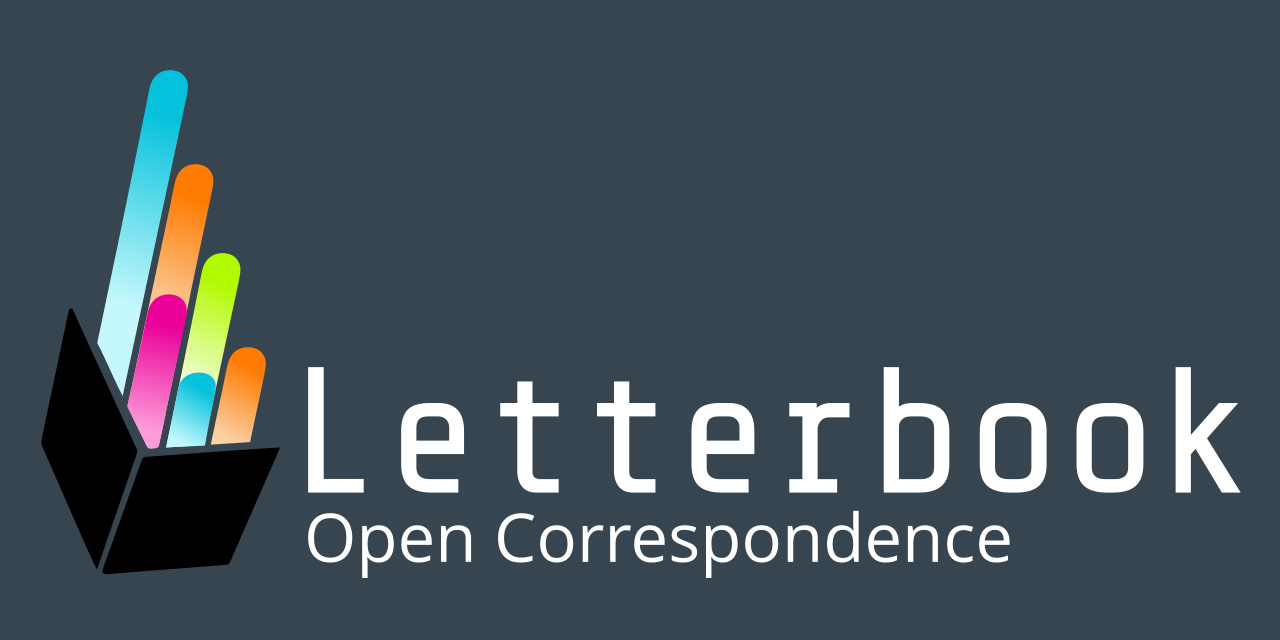
"Tools are also reciprocal with culture. We build tools, but we are also shaped by the affordances of those tools. There's no magic to this, either, and nothing changes overnight. But when you change what's possible, what's easy, what's visible, you can change behavior. Changing behavior changes culture. And everything is downstream from culture.
I'm building Letterbook. I think it can be a very good thing. I would like it if you join me. "
– Jennifer Moore, Letterbook, August 2023
Letterbook is at an even earlier stage that GoToSocial or Bonfire, but ever since it started they've doing all the right things: establishing an inclusive culture, starting with a very solid architecture; focusing on sustainability and moderation; and reaching out broadly, for example with their current moderation survey.
Following Letterbook's progress has been eye-opening for me; Jennifer's description in Letterbook - No universal translators of how much work ActivityPub requires for new projects to get to the point of federating is just one example. And like The Website League, Letterbook is rethinking some of the fundamental assumptions of the ActivityPub Fediverse.
Bluesky and the ATmosphere
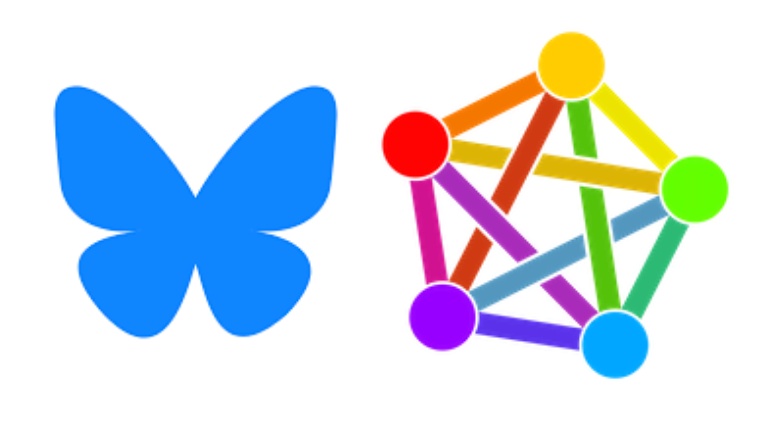
Opinions differ on whether Bluesky is part of "the Fediverse"; I think so, but not everybody agrees. In any case, as a decentralized social network ecosystem it's also a fediverse in its own right. Bluesky usage is once again surging, with a couple of million new users joining in the last week after Apartheid Clyde confirmed his plan to make life easier for stalkers and harassers by weakening Xitter's blocking functionality. And while many of the millions of Brazilians who joined Bluesky in August and September have gone back to Xitter, or moved on to Threads, quite a few are staying around – Portuguese continues to be one of the most-used languages on Bluesky.
Bluesky has put a lot of work into onboarding and usability, and that's really paid off in the new surges. "Starter packs", collections of accounts and feeds to follow, help new people find interesting content quickly. The huge number of custom feeds make it easy to find content, and we're starting to see some very useful moderation services – like Aendra's XBlock Screenshot Labeler, which makes it easy to hide screenshots by default (or not see them at all if you prefer). Blacksky is a great example of putting the different pieces together, including multiple feeds, a starter pack, a moderation service, an ambitious vision that Rudy Fraser discusses in the three-part series Blacksky: Expressing the Black Everyday in a New Digital Space.
And things are also hopping in the broader ATmosphere. Last Week in the ATmosphere (by Laurens Hof of Fediverse Report) is a great pace to track what's happening. A few recent examples:
- Bluecast, an audio space app, is big in Japan and has recently added karaoke
- BlueArk is a service to move tweets to Bluesky recently created by two Brazilian developers. It's not free, but $13.50 doesn't seem excessive for my tens of thousands of tweets. The older Twitter to Bluesky, which runs from the command line, is free
- Picosky is a chat service
- linkat.blue is a linktree alternative
- FrontPage is a link aggregator
And ...
These are only the tip of the iceberg. Here's briefer summaries of a few other good things happening.
- Erin Kissane is starting a new project addressing the key problem of helping people find a fediverse instance that's a good match. Kissane's Blue skies over Mastodon, The affordance loop, and Mastodon is easy and fun except when it isn't are essential reading for understanding the challenges newcomers to the ActivityPub Fediverse face, and the Governance on Fediverse Microblogging Servers she co-authored with Darius Kazemi is chock full of insights as well, so I'm very excited to see what she comes up with. how to buy shoes in the fediverse and revealing the fediverse’s gifts have more on her new project.
- Weird is making a prosocial network based on personal websites and the combined principles of local-first and peer-to-peer. They're using the Leaf Protocol (based on Willow), and it's great to see explorations of complements to ActivityPub.
- Educational micro-blogging charity Newsmast Foundation is doing very interesting work Channel.org, a non-profit membership service that leverages their Patchwork Mastodon fork to "help organisations take ownership of their presence, content and communities on the web." Michael Foster's FediForum demo is a good overview, and “We can have a different web, if we want it” is the most recent status.
- Flipboard has brought The 19th, AssociatedPress, NPR, Scientific American and hundreds of other well-known publishers to the Activity Fediverse, making progress on one a longstanding problem. Of course, plenty of people don't want any existing corporate social networks as part of their Fediverse experience ... for those who are okay with it, though, there's now access to a lot more media. And while Meta's entry into the Fediverse has sparked strong opposition, there's been a lot less pushback to Flipboard.
- Loops, a new short video sharing app from Pixelfed, has just entered beta – as far as I know, it's the first TikTok-like or Vine-like app in the Fediverse. With TikTok laying off moderators (as they increasingly rely on racist, ineffective AI moderation), and the threat of a TikTok ban in the US, it's good timing!
- Bandwagon, an open community for musicians and fans, has a chance to fill a major void as Bandcamp continues to deteriorate – and is built on Emissary, one of several new platforms and toolkits that could potentially make it easier for people to build ActivityPub-based applications.
Update, January 2025: The Indie Beat Radio just launched, and federates with Bandwagon.fm to amplify its music artists who’ve opted-in to distribution – as well as also playing music in the public domain. Opt-in consent FTW! Kristen Lambertsen describes it as "a way to amplify independent artists who host their music in the fediverse. The goal is that you’ll listen, discover new artists, and then mix your own playlists that you’ll share."
Update, April 2025: there's a lot of energy in this space! See fedivision.party (with the Hall of Fame of the first four years of the fediverse-wide FediVision song contest), The Social Music Network and Luka Prinčič's #BeYourOwnPlatform for a lot more! - Faircamp is another Bandcamp alternative, and a recent proof of concept integration into Hubzilla shows how it too can be brought into the Fediverse. Hubzilla has been around since 2012, when it started as a fork of Friendica; Sean Tilley's The Do-Everything System (from 2018) highlights some of its functionality. Hubzilla recently released Version 9.4, and new third-party themes are on track to improving the user experience.
- And speaking of new releases, Mastodon 4.3 is out! Even though t took a lot longer than expected (a year since 4.2), it contains some valuable improvements. Notification filtering could help cut down some important harassment vectors. Grouped notifications are a usability plus. Author tags are valuable for journalists and bloggers (including me!). Improvements to follower recommendations might help address onboarding problems (although given Mastodon's demographic skew, could in practice mostly be "white guys"). There are also a bunch of usability improvements to moderation tools, hopefully an areas that will get even more attention in the future.
There really is a lot of good stuff going on!
Previous posts in the Golden opportunities for the fediverse – and whatever comes next series
- Mastodon and today’s fediverse are unsafe by design and unsafe by default
- Blocklists in the fediverse
- It’s possible to talk about The Bad Space without being racist or anti-trans – but it’s not as easy as it sounds
- Compare and contrast: Fediseer, FIRES, and The Bad Space
- Steps towards a safer fediverse
- Eight tips about consent for fediverse developers
- 5 things white people can do to start making the fediverse less toxic for Black people
- I for one welcome Bluesky, the ATmosphere, BTS ARMY, and millions of Brazilians to the fediverses!
- Is Bluesky part of today’s Fediverse?
- The Social Web Foundation and the elephant in the federated room
- More questions than answers: another post about the Social Web Foundation and the fediverses
Notes
1 If anybody from blahaj.zone sees this, no need to worry, I'll stay active there as well: the software's sometimes buggy, but the admins and community are great and that's what matters most to me. Similarly, the Nexus of Privacy's infosec.exchange account will continue to be the primary one for now; infosec.exchange is well-connected, including to Bluesky via Bridgy Fed (which doesn't work yet with GoToSocial), and a good place for a privacy newsletter. One of the great things about the fediverse is that you can have accounts on multiple instances, and I take full advantage of that!
